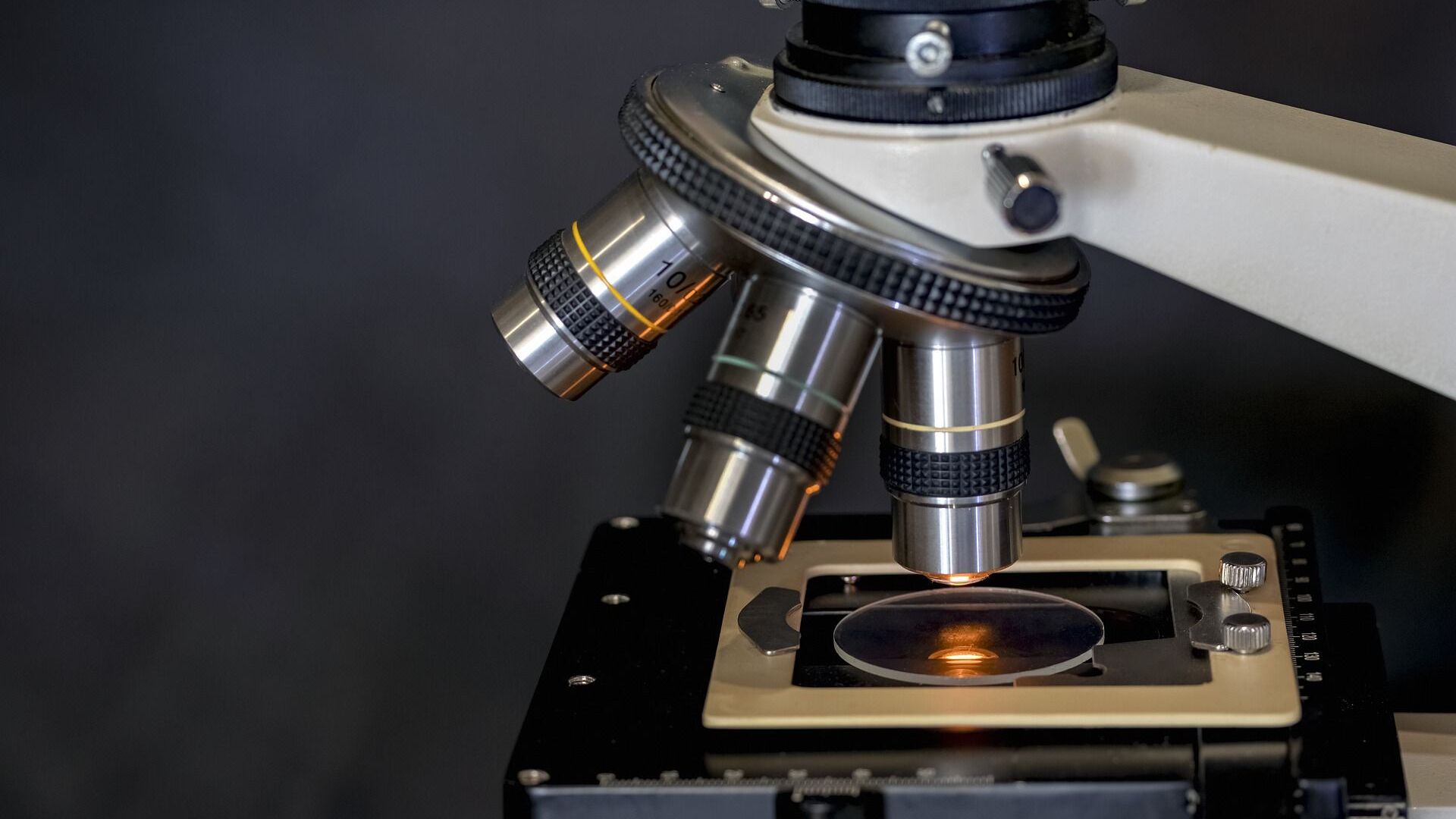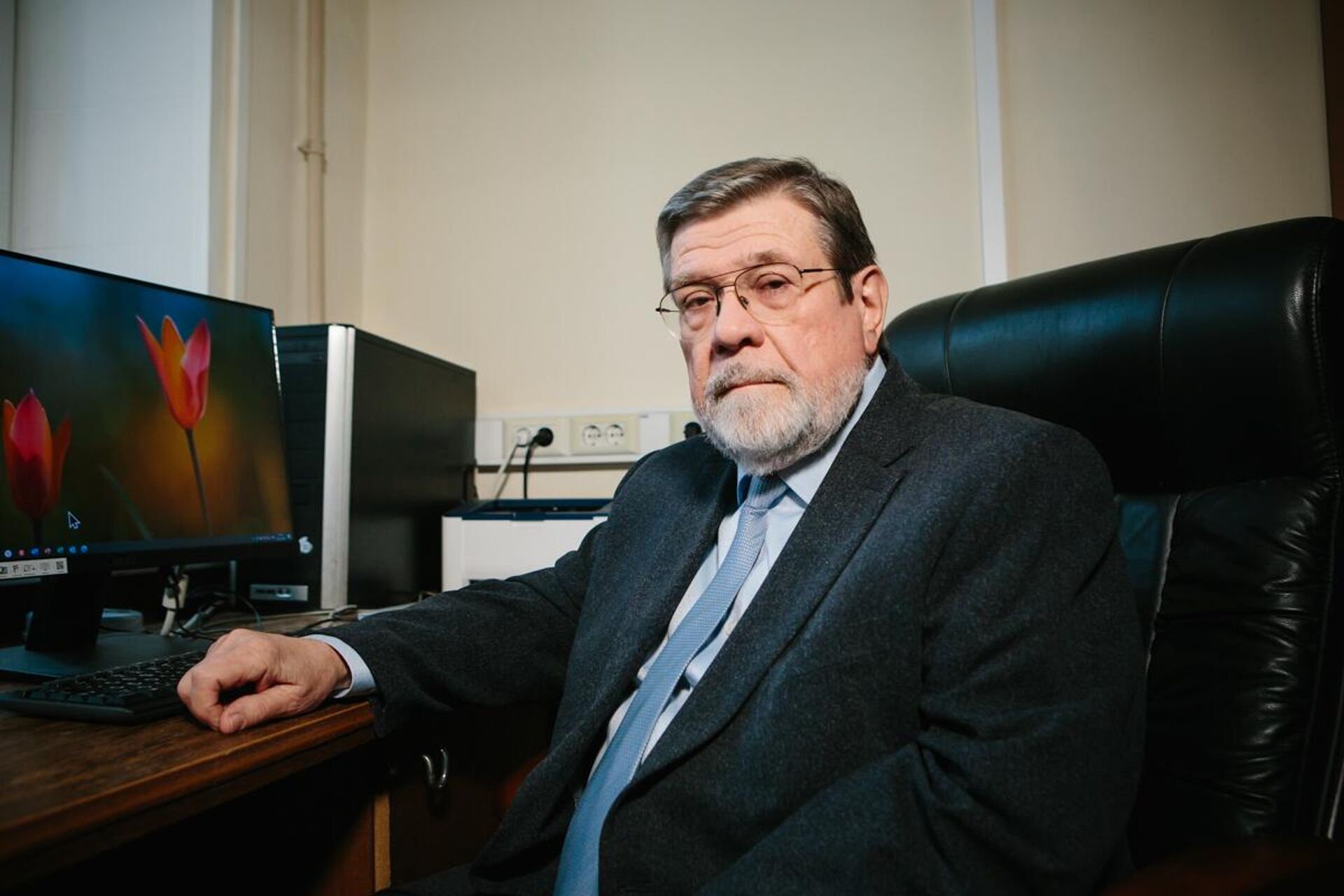https://sputniknews.in/20250518/precision-weapon-to-kill-cancer-developed-by-russian-scientists-9154088.html
'Precision Weapon' to Kill Cancer Developed by Russian Scientists
'Precision Weapon' to Kill Cancer Developed by Russian Scientists
Sputnik India
Russian scientists are developing a new method of curing cancer, revealed Alexander Sobolev, corresponding member of the Russian Academy of Sciences and head of RAS’ Molecular Genetics of Intracellular Transport laboratory.
2025-05-18T17:13+0530
2025-05-18T17:13+0530
2025-05-18T17:13+0530
science & tech
science & tech
russia
rosatom
moscow
cancer
https://cdn1.img.sputniknews.in/img/07e9/05/12/9154074_0:100:1921:1180_1920x0_80_0_0_4ba4b352cf918906a49b455fd9455e0f.jpg
The researchers, Sobolev told Scientific Russia magazine, have developed artificial protein molecules that can “identify” cancerous cells and enter these cells’ nuclei via intracellular transport mechanisms.These artificial molecules could potentially be used to carry toxic agents such as radioactive isotopes that would ensure the destruction of cancerous cells with minimal risk of affecting neighboring non-cancerous cells.Dubbed “modular nanotransporters”, these tiny cells consist of several modular blocks that can be altered depending on the task at hand.For example, Sobolev said, the modular transporter currently being tested by Rosatom consists of four modules:All of these stages have already been tested and demonstrated during experiments, Sobolev noted.The safety of the new method had also been confirmed by previous tests of a similar modular nanotransporter involving the P. Hertsen Moscow Oncology Research Institute and A. Tsyb Medical Radiological Research Center.Having realized that virtually any kind of payload can be attached to the molecules they have developed, the researchers also came up with a concept of a “diving antibody”: an antibody or a molecule similar to it that could “dive” into a target cell and interact with the target protein within.
https://sputniknews.in/20241201/russian-scientist-on-cancer-vaccine-highly-effective-in-treating-melanoma-and-metastasis-8479005.html
russia
moscow
Sputnik India
feedback.hindi@sputniknews.com
+74956456601
MIA „Rossiya Segodnya“
2025
Sputnik India
feedback.hindi@sputniknews.com
+74956456601
MIA „Rossiya Segodnya“
News
en_IN
Sputnik India
feedback.hindi@sputniknews.com
+74956456601
MIA „Rossiya Segodnya“
Sputnik India
feedback.hindi@sputniknews.com
+74956456601
MIA „Rossiya Segodnya“
science & tech, russia, rosatom, moscow, cancer
science & tech, russia, rosatom, moscow, cancer
'Precision Weapon' to Kill Cancer Developed by Russian Scientists
Russian scientists are developing a new method of curing cancer, revealed Alexander Sobolev, corresponding member of the Russian Academy of Sciences and head of RAS’ Molecular Genetics of Intracellular Transport laboratory.
The researchers, Sobolev told Scientific Russia magazine, have developed artificial protein molecules that can “identify” cancerous cells and enter these cells’ nuclei via intracellular transport mechanisms.
These artificial molecules could potentially be used to carry toxic agents such as radioactive isotopes that would ensure the destruction of cancerous cells with minimal risk of affecting neighboring non-cancerous cells.
Dubbed “modular nanotransporters”, these tiny cells consist of several modular blocks that can be altered depending on the task at hand.
For example, Sobolev said, the modular transporter currently being tested by Rosatom consists of four modules:
One of the modules identifies cancerous cells by interacting with the receptors located on their cellular membranes
When the transporter enters a cancerous cell in a cell membrane bubble, another module creates pores in this bubble, granting access to the cancerous cell’s inner workings
The third module contains a sequence of amino acids that acts as a signal that ensures the delivery of the transporters’ payload to the cancerous cell’s nucleus
The fourth module helps maintain the necessary 3D shape of the transporter and allows attaching of the toxic payload
All of these stages have already been tested and demonstrated during experiments, Sobolev noted.
The safety of the new method had also been confirmed by previous tests of a similar modular nanotransporter involving the P. Hertsen Moscow Oncology Research Institute and A. Tsyb Medical Radiological Research Center.
Having realized that virtually any kind of payload can be attached to the molecules they have developed, the researchers also came up with a concept of a “diving antibody”: an antibody or a molecule similar to it that could “dive” into a target cell and interact with the target protein within.



